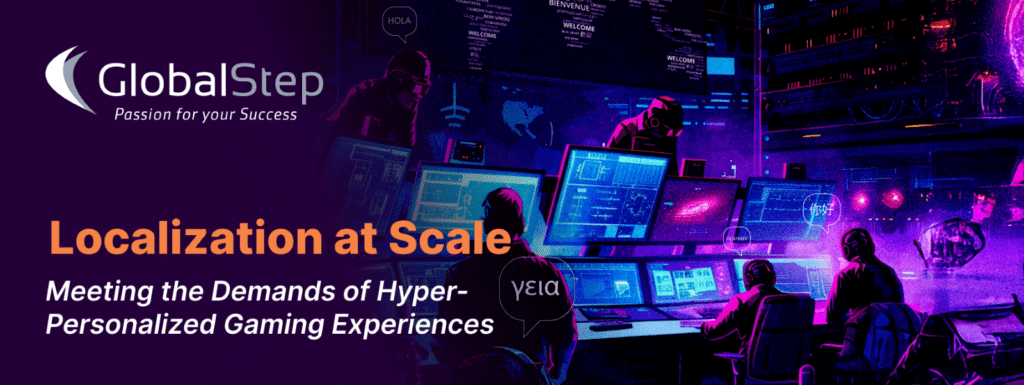
You boot up a new title, and everything clicks. The dialogue works, the jokes land, and nothing feels forced or out of character. Yet it’s not just the spoken word — everything from UI elements to quest cues, menu designs, and tooltips is natural and intuitive, guiding you seamlessly through the experience. It doesn’t matter if a title began life in Japan, America, or Poland — it’s tailored to your eyes and ears alone. That’s localization at its finest. And these days, reaching that sense of immersion is more challenging than ever in a gaming generation that demands both technical precision and cultural sensitivity.
Localization isn’t about translating between languages, but about reimagining intent, humor, and cultural detail in a way that doesn’t break immersion. What’s a killer in English can become a headscratcher in Mandarin. What’s a perfectly coherent questline for a Western player can fall apart for Middle Eastern players altogether. Personalized, region-specific experiences have become an expectation.
Speed vs. Quality: An On-Goin’ Battle
The biggest challenge? Velocity. Live-service games, continuous patches, and real-time events make continuous localization a requirement. There’s a seasonal update, and then new dialogue, UI, and tooltips appear, and you must have them localized rapidly. Nobody wants to wait for a localization update when everyone else on the planet is grinded for new loot.
Optimum localization is transparent — players should feel their native language is being utilized in-game from the start. That level can only be attained with native speakers leveraging gaming expertise, deep localization testing, and integration with game development pipelines seamlessly.
Beyond Translation: The Depth of Real Localization
Localization isn’t a matter of simply translating language. Voice over, UI placement, quest flow, menu structures, cultural references, even artwork and animation can all enter into it. A missed localized pun is one thing; a graphical bug excluding a whole group of persons is worse. Slang, even censorship and legislation around terms and references must be taken into consideration. What works in one region can be banned in another.
Literal translation may not work. Successful localization doesn’t merely translate language, but contextualizes, conveys intention, and gameplay flow. That’s why high-end studios mix and match human expertise with smart automation for localization and LQA. Leveraging Machine translation is possible depending on content type, domain, source text, but when it fails our expert Post Editors dial in, getting each line to flow naturally. Localization testing then finds defects in advance, from UI overruns in language to dun-intended meanings.
Scaling Localization Without Compromising Immersion

Expanding to a global base doesn’t necessarily require compromising on authenticity. Players insist a game must have a native, not translated, sensation. But when translating for a dozen-plus regions, the issue isn’t necessarily one of language — but one of technology, culture, and operations. Poor localization can destroy immersion in a single moment, through clunky phrasing, poorly matched voiceovers, and UI that feels off.
Scaling without sacrificing quality is about combining expert human translators with efficient automation, optimized processes, and built in LQA. It’s about providing uniformity in in-game dialogue, voiceovers, UI, and marketing assets, in harmony with development velocity. Optimum localization pipelines don’t merely translate, but tailor, with regard to tone, humor, and emotional cues for a specific target group.
Partnering with GlobalStep for Scalable, High-Quality Localization
At GlobalStep, localization isn’t a matter of translation, but about providing an immersive gaming environment for any player, anywhere, such that it feels native-made for them. With our full-cycle localization, our workflows integrate seamlessly with development pipelines, their updates, patches, and expansion packs go through processing with efficiency and no loss in quality.
With a native-speaking localization group, cutting-edge language QA, and cultural adaption expertise, we allow studios to navigate the complexities of multilingual releases with accuracy and speed. Whatever it takes to tailor humor, voiceovers, and UI text for a flawless integration in each language, we have the talent to deliver rich, immersive, localized experiences at scale. Want to make your game resonate with a worldwide player base? Get in touch with GlobalStep today and develop a localization strategy that brings both quality and velocity — no compromise included.
Know more about our localization services
Read other blogs on Localization
Get in touch with us today





